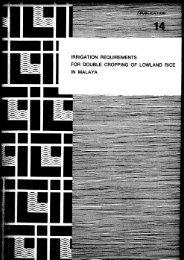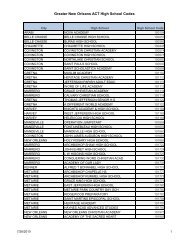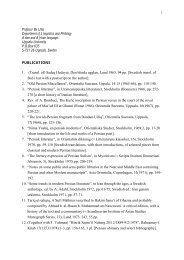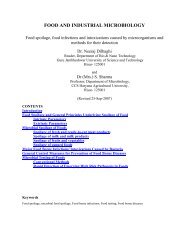On the Future of Indigenous Traditions - Munin
On the Future of Indigenous Traditions - Munin
On the Future of Indigenous Traditions - Munin
Create successful ePaper yourself
Turn your PDF publications into a flip-book with our unique Google optimized e-Paper software.
system <strong>of</strong> <strong>the</strong> Adivasis that: “The traditional administrative system for forest and land<br />
for tribals continued untill <strong>the</strong> Mughal period. Nei<strong>the</strong>r Hindu kings nor Muslim rulers<br />
attempted to disturb <strong>the</strong> traditional administrative system.” Perhaps it was, however,<br />
obvious that within <strong>the</strong> policy <strong>of</strong> ‘divide and rule’ <strong>the</strong>ir system was given a ‘legal<br />
recognition’ when <strong>the</strong> “British Government attempted to bring <strong>the</strong> administration <strong>of</strong><br />
tribal areas under government rule.” 90<br />
There have been two different approaches in dealing with <strong>the</strong> matters <strong>of</strong> <strong>the</strong> Adivasis,<br />
both during <strong>the</strong> colonial and <strong>the</strong> post-colonial times. Adivasis have been seen as poor,<br />
‘socially backwards’, and <strong>the</strong> ‘exploited lot’ due to <strong>the</strong>ir distinctiveness in <strong>the</strong> caste<br />
based society. Within this reality, <strong>the</strong>ir socio-economic situation needed some<br />
alleviation to come to <strong>the</strong> common social standards <strong>of</strong> <strong>the</strong> mainstream. But on <strong>the</strong><br />
o<strong>the</strong>r hand <strong>the</strong> colonial authorities had to deal with occasional uprisings and resistance<br />
from <strong>the</strong> Adivasis, and for that reason <strong>the</strong>y had to be dealt with in a different way.<br />
In <strong>the</strong> background <strong>of</strong> colonial rule <strong>the</strong> prime objective was to have administrative<br />
control over <strong>the</strong> land, forests and resources, after <strong>the</strong> “Diwani (throne and acclaimed<br />
authority <strong>of</strong> collecting taxes) <strong>of</strong> Bangal, Bihar and Orissa was given to <strong>the</strong> East India<br />
Company in perpetual grant by Sah-Alam, Emperor <strong>of</strong> Delhi on 14 th August<br />
1765…” 91 Taxes levied on Adivasis by Muslim rulers, now were replaced by<br />
introducing Zamindari (landlord) system by <strong>the</strong> British authorities during <strong>the</strong> colonial<br />
period. “Zamindars introduced jagirdars, thikedars, (-tax collectors and knights)<br />
courtiers etc. in tribal areas and <strong>the</strong>ir muscle men exploited and oppressed <strong>the</strong> tribe<br />
mercilessly.” 92 The landlord system in <strong>the</strong> Adivasis areas in <strong>the</strong> eighteenth and early<br />
nineteenth centaury led to fierce rebellions in parts <strong>of</strong> West Bengal and Bihar (south<br />
<strong>of</strong> Bihar now Jharkahnd) again when <strong>the</strong> British responded by removing landlords and<br />
passing land settlements aimed at securing ‘tribal tenure’ in <strong>the</strong>se areas.<br />
90 Ibid., 31.<br />
91 Manual <strong>of</strong> Chotanagpur Tenancy Laws, 2002 ed., Vol 2, s.v; “Introduction”, xi.<br />
92 V.S. Upadhyay and Gaya Pandey, Tribal Development in India (A Critical Appraisal) op. cit., 9.<br />
61

















